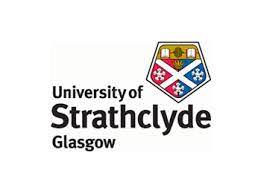University of Strathclyde: Life sciences company Rostra Therapeutics wins Scottish EDGE competition
Rostra Therapeutics, a life sciences company spinning out of University of Strathclyde, has won the 2022 Scottish EDGE pitch competition for businesses.
Hundreds of high calibre applications were received by Scottish EDGE, the UK’s biggest funding competition for high growth potential businesses. Rostra has received a total of £80,000 to help aid the advancement of its new class of compounds into medicines to restore health and save lives.
Rostra Therapeutics’ goal is to develop medicines to tackle serious fungal infections, a group of diseases that effects over a billion people annually and kills more than 1.7 million people every year globally.
John Mulgrew, Rostra’s Chief Operations Officer, who gave the winning pitch, said: “We are delighted to have been chosen from such a talented group of finalists. The Scottish EDGE award will enable Rostra Therapeutics to move into our next stage of preclinical development.
“To develop these molecules into medicines, we will continue to seek to partner with other organisations who share our vision, and we seek investment from those who likewise wish to bring new, effective medicines to patients.”
David Findlay, Co-founder and CEO of Rostra Therapeutics, said: “Rostra Therapeutics will initially focus on the increasing need for new medicines to address invasive fungal infections,
“With more than 15 million deaths a year from infectious diseases, and the increasing threat from AMR, we recognise the urgent need to develop novel anti-infective medicines to achieve our vision of ‘restoring health and saving lives with innovative medicines, globally’.”
Professor Colin Suckling OBE, who along with former Strathclyde colleague Professor Roger Waigh first discovered and initiated development of the platform technology nearly 20 years ago, said: “I am delighted that Rostra Therapeutics has been selected by Scottish EDGE as a high growth company. The Scottish EDGE award will move this exciting technology into its next phase of development.
“The evidence currently shows that our highly effective technology has the potential to benefit patients globally, improving quality and duration of people’s lives when they become afflicted with infectious diseases.
The platform has recently been selected by the US National Institute of Health’s (NIH) National Institute of Allergy and Infectious Diseases preclinical services programme for further assessment against aspergillus spp. This is a serious infection affecting many hospitalised patients, with a mortality rate of 30-70%. Invasive aspergillosis is associated with patients with weakened immune systems, such as those having stem cell or solid organ transplants, patients undergoing chemotherapy or those hospitalised with severe influenza. Up to 30% of patients hospitalised with SARs CoV 2 suffer from invasive aspergillosis infection.
Rostra co-founder and CTO Dr Fraser Scott said: “The ever-present threat of infectious diseases to the health and well-being of individuals, and the economic prosperity of all, necessitates new and effective therapeutics to equip those at the front line of fighting these life-threatening conditions. Antimicrobial resistance (AMR) also constantly erodes our ability to address these diseases with existing medicines.
“In response to these threats, we have developed a formidable platform of molecules that kill bacteria, fungi, parasites and viruses through disrupting the fundamental cellular activity of DNA & RNA replication, with the added benefit of multiple modes of action (MOAs) to delay or prevent the development of AMR.
“The Scottish EDGE award will accelerate the development process and help us to rapidly evolve these compounds into disease-beating medicines.”

